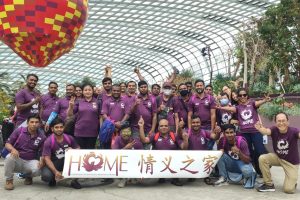Have you been hit by the “productive” pandemic?
You know what I mean. People sharing inspirational stories of philosophers and artists producing their greatest works at times of crisis. Despite being locked in our homes, we are told not to lose steam and continue exercising our creativity and stay productive. Don’t let this be a time to be a couch-potato, they say.
But try as we may, we end up writing memes like the following:
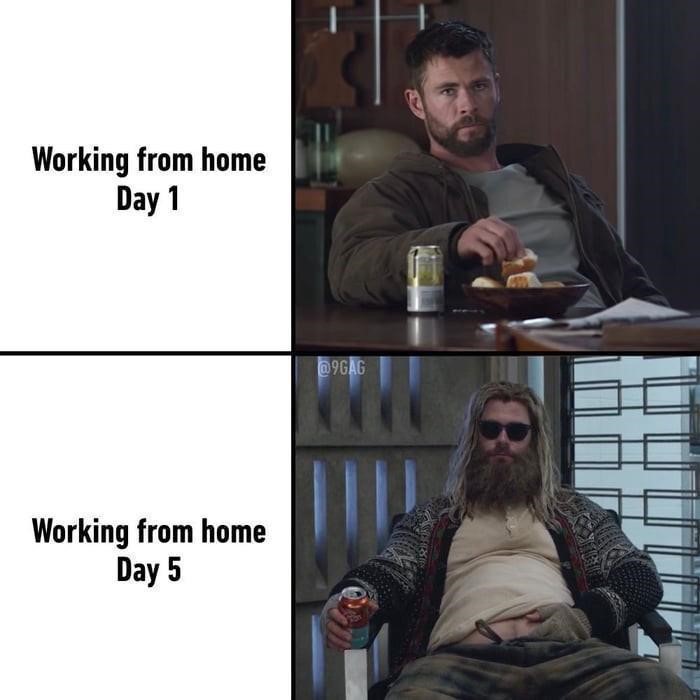
This shouldn’t be surprising.
Recent polls conducted by the National Youth Council show that the majority are very concerned about the COVID-19 situation and are being responsible by playing their part to stay home for Singapore. However while our youth are concerned about the situation and are willing to adhere to the measures in place, some of them have faced challenges and impact to their social and emotional well-being. At times like these, it is understandably difficult to resume life as per normal.
Although Singapore’s Circuit-Breaker (CB) ended on 1 June, we are reminded to stay vigilant as the crisis is not over. Yet, as Einstein said, “In the midst of every crisis, lies great opportunity.”
With July being Youth Month, we’d like to applaud youth who have stayed resilient and harnessed their energy to make a positive difference. To make something of themselves and seizing opportunities.
This can come in the wake of our general elections, or an outlet to support foreign workers. Confined to working from home, how were these youth able to look past their predicaments and make a difference?
They Couldn’t Vote, But Politics Still Matter to Them
When filmmaker Megan Lim and music composer Leia Devadason (both former School of the Arts students and turning 21 later this year) returned to Singapore from their overseas studies, they weren’t expecting to set up a political website. However upon discovering that the elections were coming, they promptly researched and produced their website dubbed Grassroots Level Party in a matter of days.
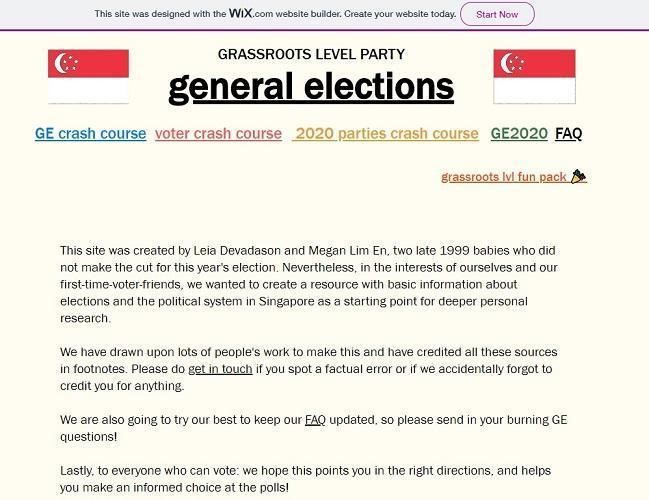
Catered mostly for first-time voters and youth of their generation, Leia explained, “The first version of the site was just a general election crash course. At that time, the parties had not disclosed their manifestos yet, so we looked at structural issues and the electoral process. Megan designed the site while I was pulling information from various sources.”
As time grew, they included more content including details of political parties, voting procedures and other resources. Because all this information was not consolidated in a single platform, both of them articulated that this could be a possible “deterrence to first-time voters”. Hence, they compiled all the information into a digestible and accessible format.
“We would have wanted to conduct policy comparison, but we were cognisant that critical commentaries already exist elsewhere, therefore we inserted our own light-hearted content such as ranking the parties’ polo t-shirts and rewriting hit pop songs for parties”.
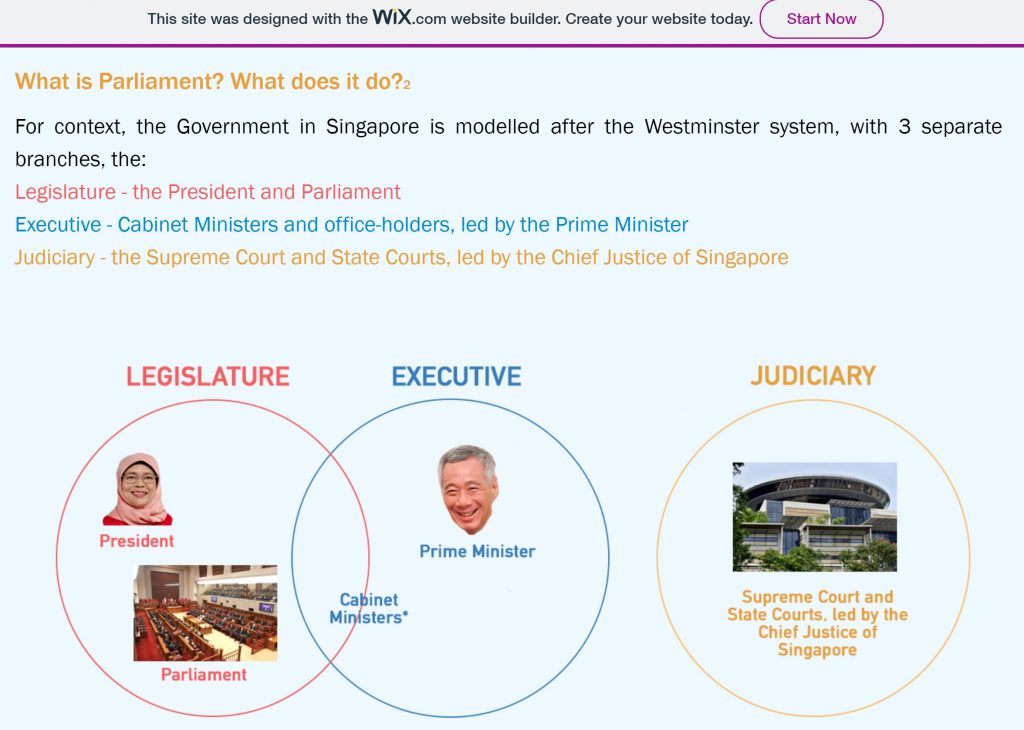
The reactions from their families have been amusing as well. Their mothers worried that they might get unwanted attention from the authorities, while Megan’s father was fascinated that young people are interested in politics.
Nowhere was it more clear that their website was desperately needed when Leia revealed, “there are first time voters in my family, mostly cousins, who thought that the GRC is the name of the political party!”
But that’s also where their hard work paid off. Megan’s father praised their site as an objective source of information while Leia’s uncle thanked her as he had been looking for an informative site like this for a long time.
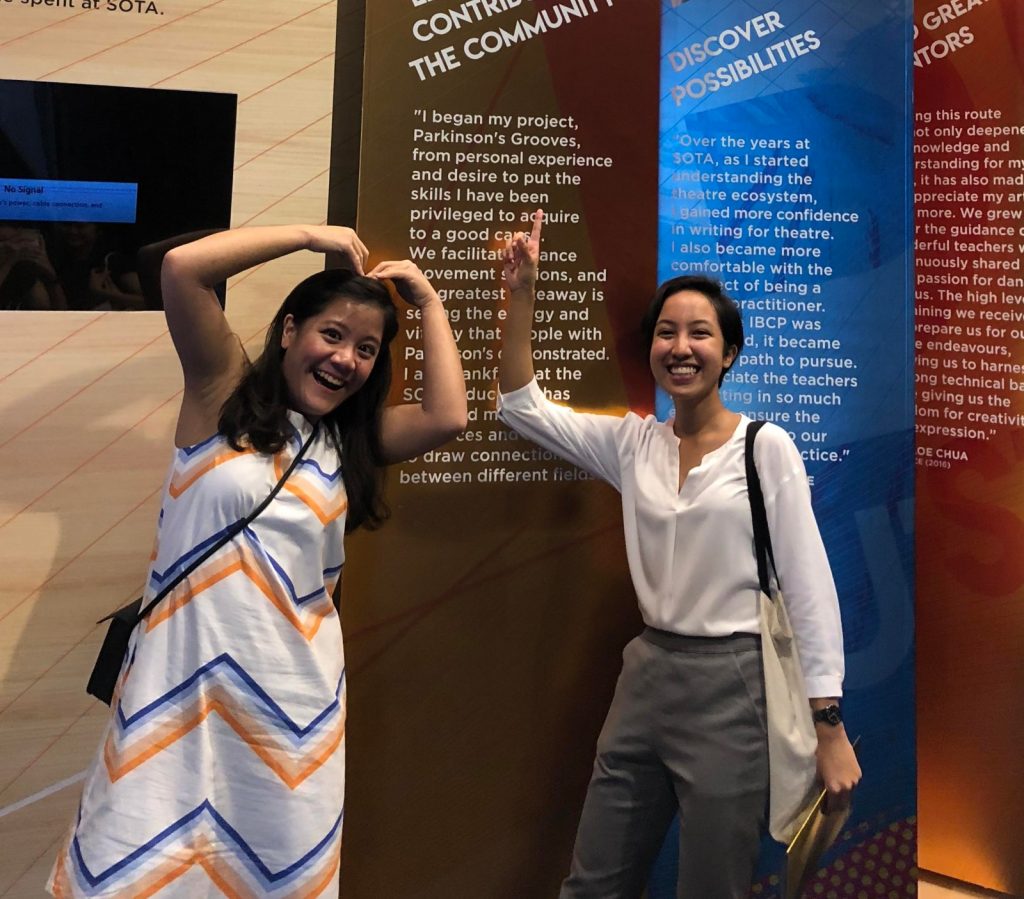
As creative artists, working on this website has been timely. Both related that it was difficult to sustain their creative interests and work on their projects during the lockdown since they couldn’t get out to film or make music. In turn, it engendered recognition of their identity as Singaporeans and fueled their interest to work on the website.
Megan and Leia are youth who want to see positive change. Their website is like a pebble drop in this ocean of political awakening. They expressed hopes for more open conversations on many socio-economic issues. Essentially, the Singapore they envision is capable of “accommodating different views” and “constructive dialogue.”
Love Thy Neighbour
At 30 years old, Cai Yinzhou is no newbie when it comes to volunteer work. His passion started 7 years ago in university when he was studying sustainability development and tourism. After working part-time as an events organiser, which he credits for developing his competencies, Yinzhou eventually developed sympathies for our migrant workers. He felt that more could be done to integrate them into society and make them feel more welcomed in Singapore.
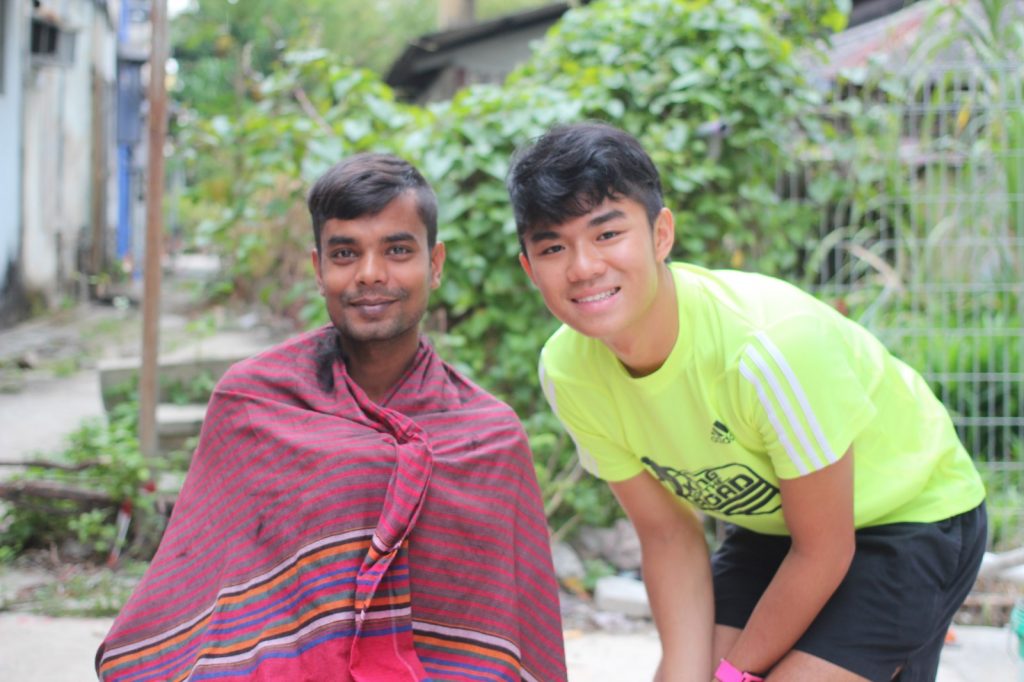
To foster better relations with them, he then established Citizen Adventures, which runs tours for attendees in places like Geylang and Dakota Crescent to discover and appreciate neighbourhoods as social ecosystems. The organisation created initiatives such as #Backalleybarbers (offering free haircuts to migrant workers) as well as community volleyball and badminton activities.
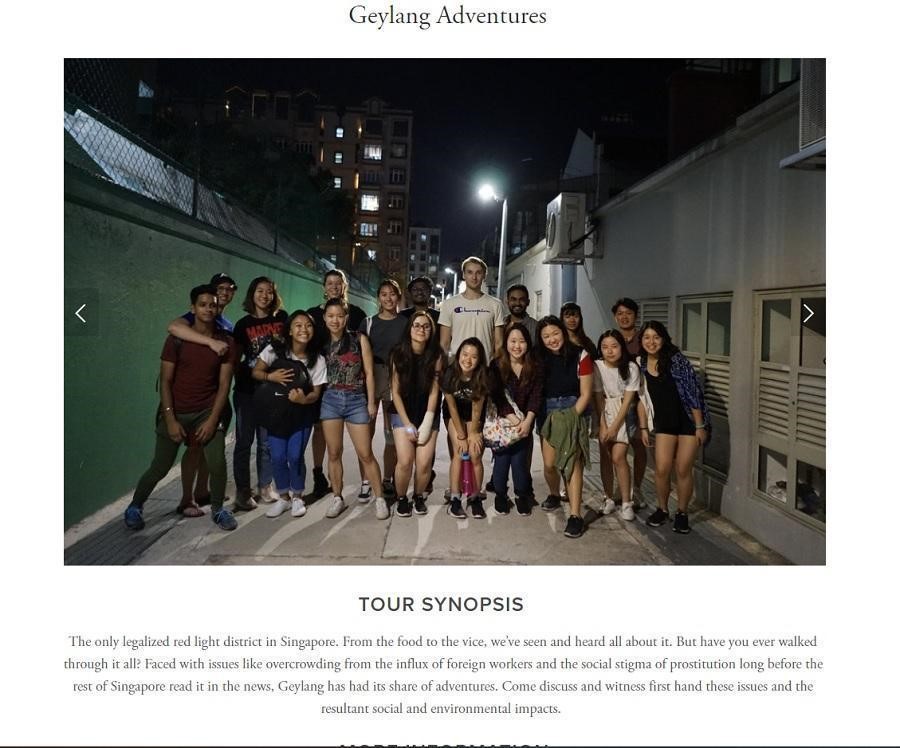
Today, as the chief organiser for CMSC, he is working full time managing 300 volunteers from all walks of life. The amount of work has been challenging and substantial, as he explained, “We are supporting dorm operators who are unable to deal with the scale of the crisis. Like responding to calls for food provisions and essential goods, for example, instant noodles and thermometers. We are really seeing how their needs are unraveling since they can’t go out and are restless.”
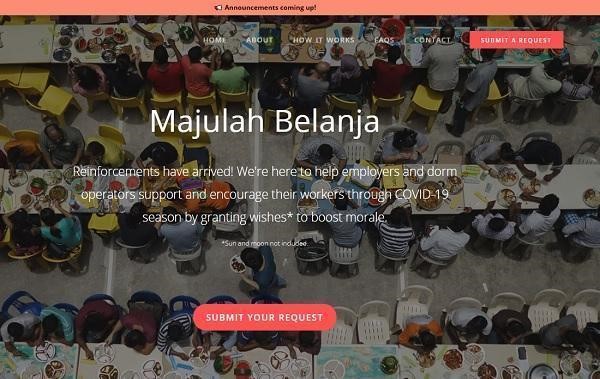
Besides addressing immediate needs, Yinzhou stressed that physical and mental well-being deserve attention. His overview of the welfare for migrant workers is amazingly comprehensive, which includes classes on stretching and mindful practices. Another programme involved matching volunteers with a migrant worker in a penpal-like relationship.
There are complex challenges to running these programmes, such as language barriers and cultural differences. Yet Yinzhou takes it in stride, acknowledging that managing his volunteer’s expectations is another crucial aspect of his job. Erudite and articulate, he weaves seamlessly in between explaining the micro- and macro-scale of his operations.
Citing examples of a data analyst and an occupational therapist volunteer in his team, he highlighted how every volunteer provides unique strengths. “It’s heartening to see these individual strengths come together, with every volunteer leading in their own way. We work in a democratised and decentralised fashion, facilitating individuals to be independent.”
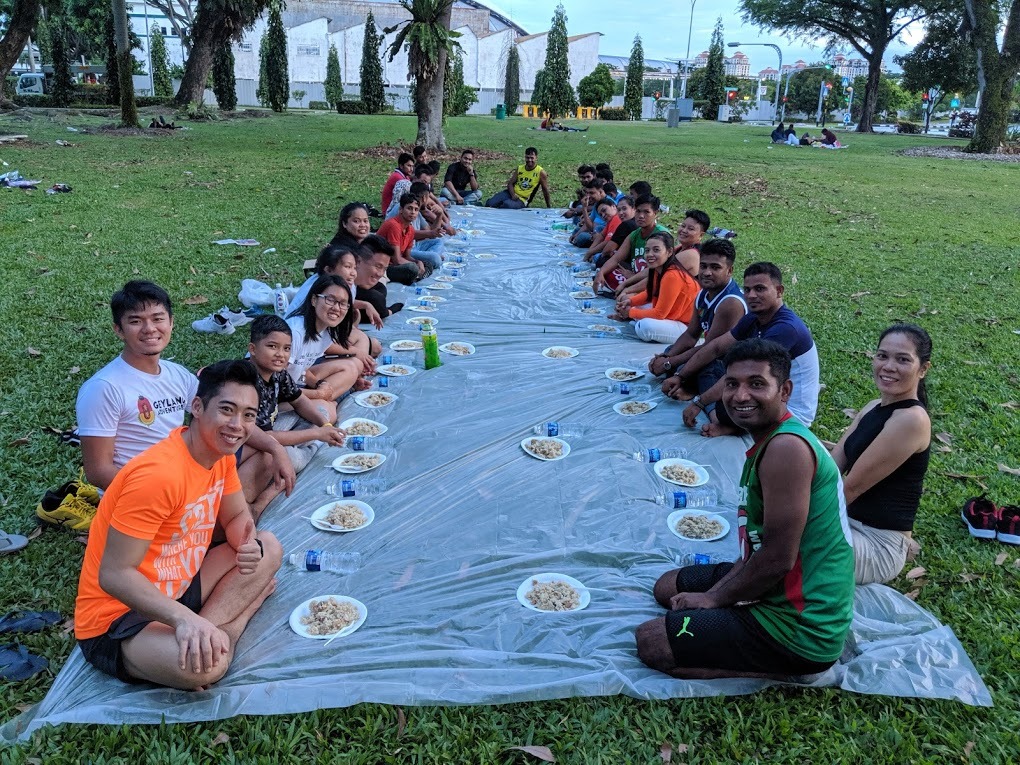
Ultimately though, Yizhou asserted that the long-term challenge is to educate the public on the scale and nature of issues surrounding migrant workers. He wants Singaporeans to understand that it’s not only about the state of the dormitories that’s at stake, but also the fundamental livelihood of migrant workers (i.e. employment rights, economic mobility and stability).
Yinzhou’s dedication is nothing short of admiration and respect. He lives and breathes this issue as he treats migrant workers as part of his family. Espousing his philosophy of “love thy neighbour”, he surmised, “Singapore is a society built by migrants. If we can relate to them on a deeper level, they are quite inspiring. We can broaden our ways to care for them and incorporate that into our national narrative. This is a journey all of us should take.”
From Volunteering to Managing Volunteers
When 24-year-old Sudesna Roy Chowdhury got bombarded with requests from doctors on how to communicate to migrant workers because of language barriers, she knew she had to do something. Recognising that our doctors require an efficient method to communicate with them, she worked on a Bengali translation website but it didn’t stop there.
Instantly, her friends, Aarthi Acthuthappa, Niranjana (Niya) Krishna, Vaishnavi Naidu and Shahera Safrin realised that other than Bengali, a huge proportion of migrant workers spoke other Indian languages too, hence she proposed translating the website into other languages such as Malayalam, Tamil and Hindi. The end result is the “COVID-19 Translation Portal”, which provides myriad resources for healthcare professionals to communicate effectively with migrant workers.
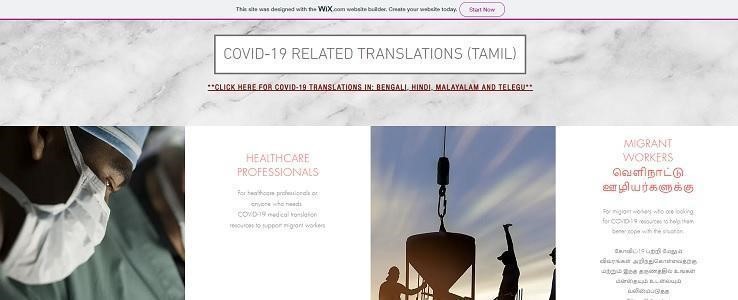
A trainee lawyer at 26 years old, Shahera reminisced with a grin on her face, “Our initiative took a life of its own.” The doctors at hospitals found it so useful that they began thanking her. Soon, word spread to Ministries, the government task force and NGOs like AWARE, TW2, HOME. “Honestly, the praise doesn’t matter because we are so glad to produce real change.”
By plugging this important gap in the system, the group has outdone what they initially intended. To date, the website contains detailed information to communicate on issues like symptoms, physical history, quarantine advice and ICU. It’s so extensive that simple greetings and audio are included.
Despite not being “professional translators”, the response was so overwhelming that they resorted to calling for interested volunteers, accumulating 80 volunteers to date and designing an entire management system to boot.
Niya, a 24-year-old tech policy agent, explained, “We now have a quality control system where we divide between higher- and average-skilled translators. The bulk of it goes to regular volunteers while the higher translators consist of journalists, teachers, professional translators, including one from Parliament!”
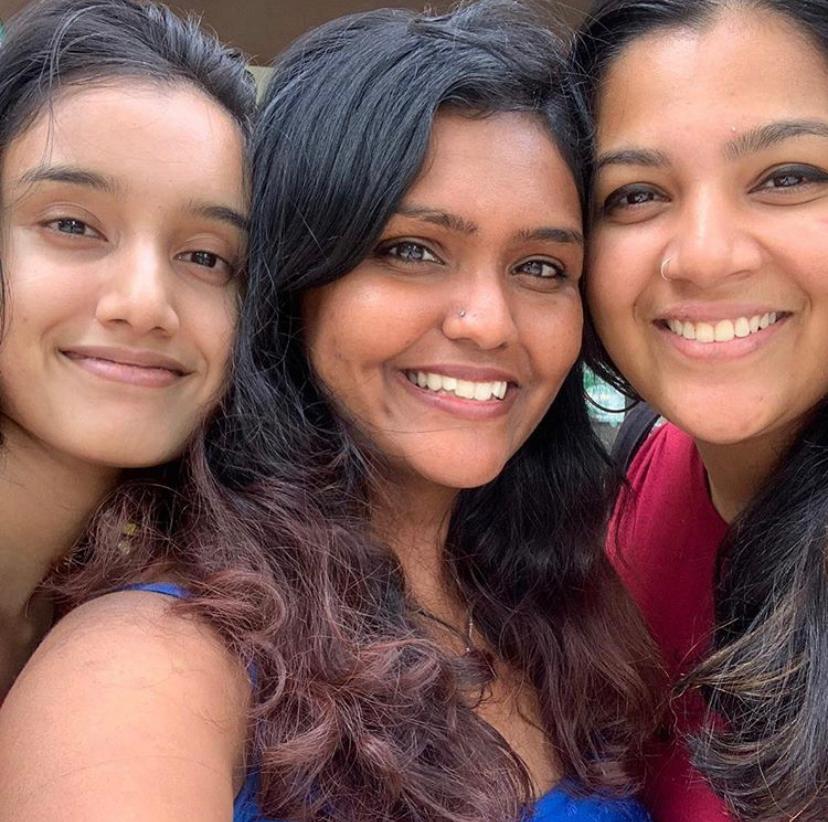
Describing their work as equivalent to having a second full-time job, their spirits were never dampened despite not being paid. Shahera laughed when she described the volume of work needed to be done.
Their families also contributed in incomparable ways. Niya’s father helped to translate Malayalam and her mother assisted in recording her voice. Shahera’s parents are first-generation Singaporeans from India, who could understand migrant workers and speak their language. All together, there was a sense of community as friends and family contributed as much as possible.
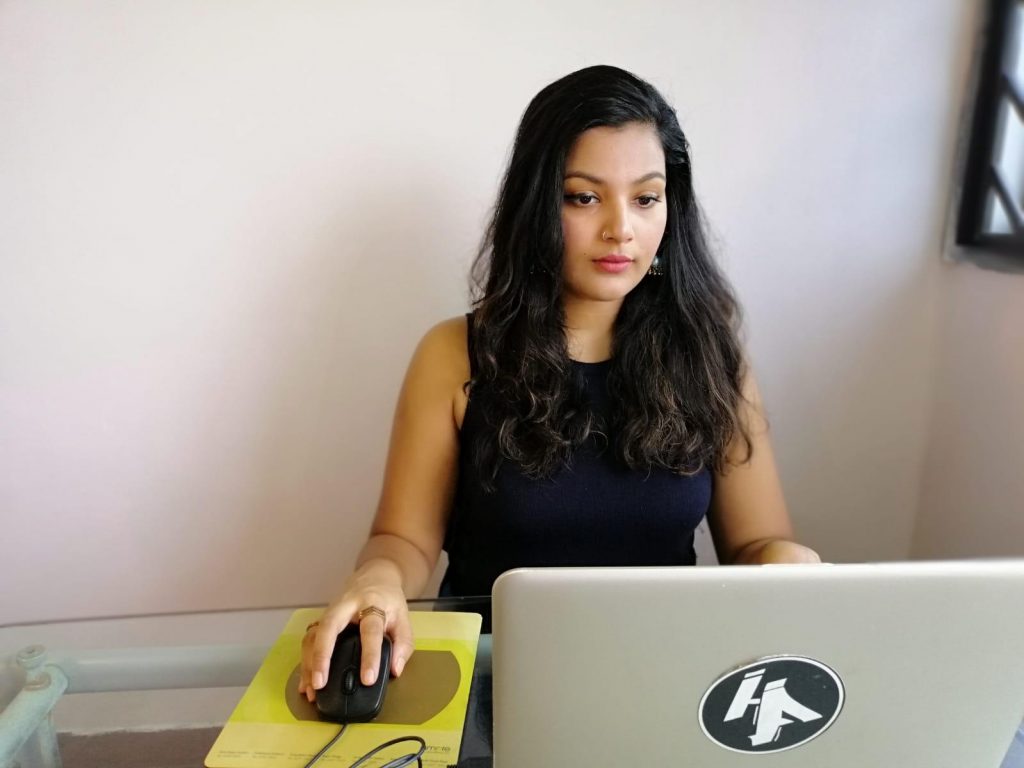
When asked about future goals, they pondered for a bit. Not for lack of foresight, but because the world seemed full of opportunities and they were already working to expand their outreach.
For instance, they are on the call literally 24/7 for video consultations with doctors who require translations on the spot. Likewise, they have been working on other projects such as a mental health outreach programme, which includes translating poems and books for migrant worker festivals, including the upcoming Global Migrant Festival.
There’s also the Black Box Initiative, a safe space designed for attendees to discuss and debate on various social issues. Hoping to engage more youth, they aim to improve understanding on issues such as racism, sexism and poverty. Their first session was an unexpected success with 40 attendees from all walks of life (they had expected 15 only).
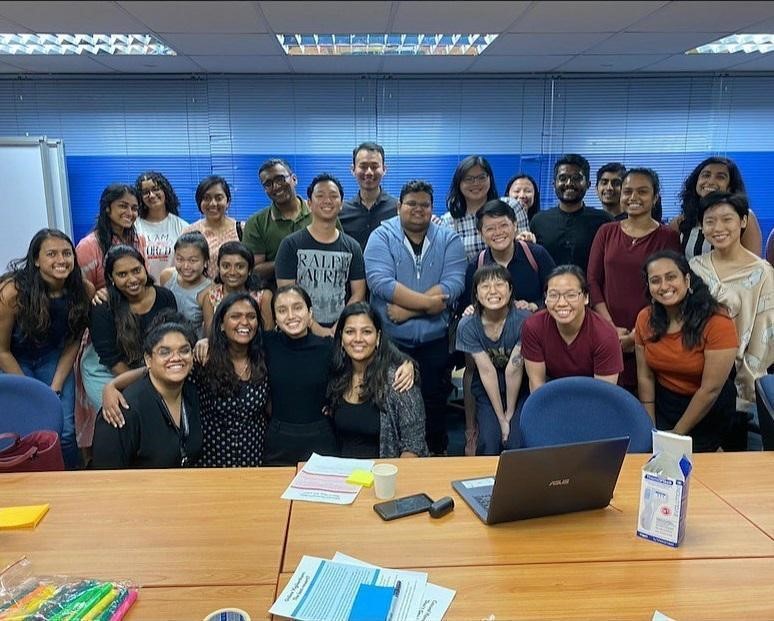
Undaunted, confident and outspoken, there’s nothing stopping these girls from engaging in one social cause after another. If anything, their appetite for social activism seems insatiable—thanks to the unexpected and successful responses and engagement they’ve gotten from participants.
Don’t Make No Difference
Two young creative artists who can’t vote yet. A veteran volunteer who started from conducting neighbourhood tours. A group of besties collaborating together instinctively. Despite their diverse origins, is there something they possess which differentiates them from others?
When prompted about this, Leia contended, “there’s no need to create something. Truthfully, the ability to create comes from a stable place to emotionally channel into something. It makes no difference to your life if you create something or not.”
Megan agreed, “Everyone utilises their time in a different way. I know some friends are using this time to chiong hard for their studies. The CB can be a good time for a mental health break, and not everyone has the privilege of time to create something whether they want to or not.”
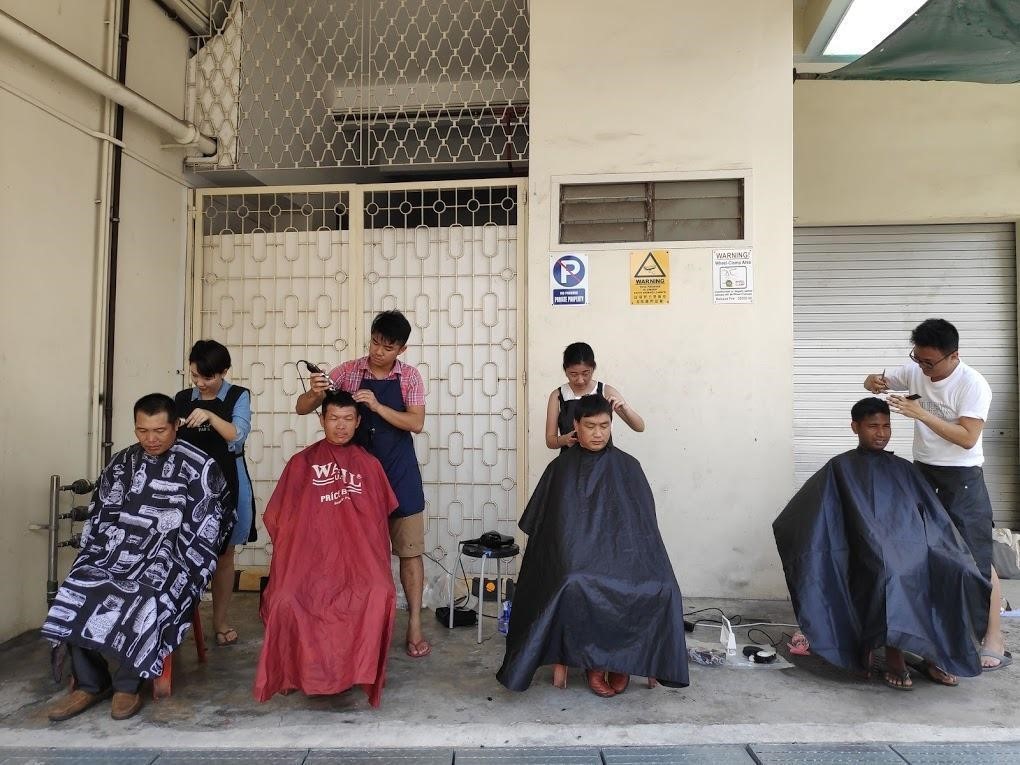
Indeed, if there is one distinct trait they all share, it was their humility. All of them recognised that supportive friends and family enhanced their enthusiasm and experiences. Nevertheless, even if you don’t create a social initiative, as these stories show, every effort counts. Whether you help to crunch data, teach mindful exercises, design a website, or cut hair for others, everyone can contribute positively in their own way.
Taking the Plunge
If reading these stories has lit a spark in you, act on it. This is your month and there is no better time to take advantage of opportunities and ignite the passion in you.
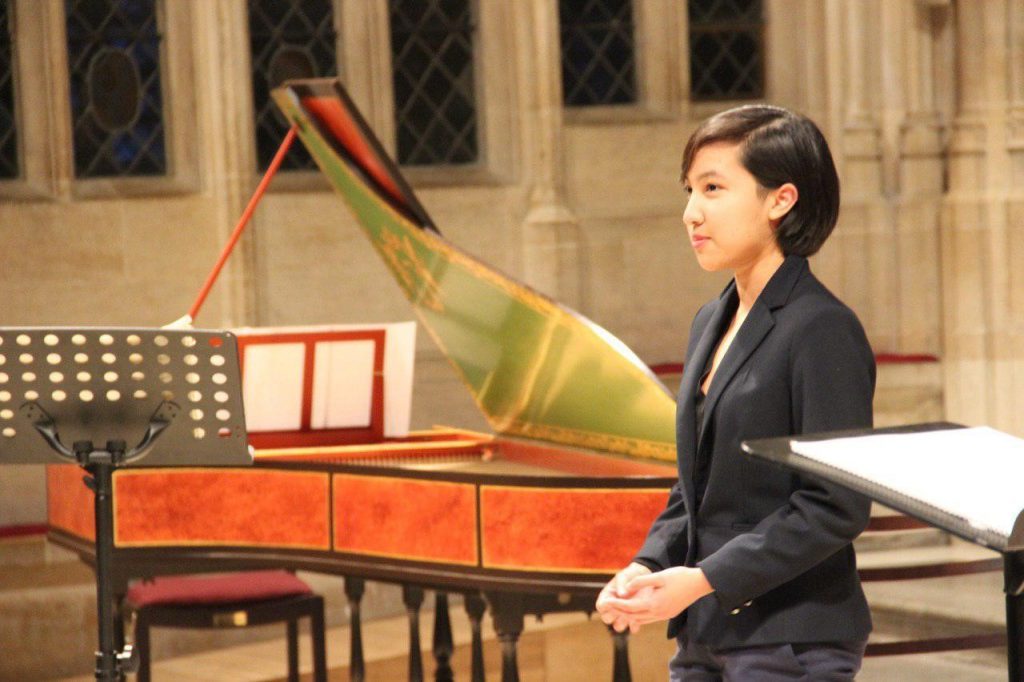
If you are uncertain of how to start, the National Youth Council provides a myriad of resources for you to tap on. Do you have an original idea to better your community? Check out the Young ChangeMakers Grant where you can receive funding for your own ground-up initiative.
If you are an Institute of Higher Learning student and would like to develop yourself through on-job training and learning experiences in the community and social sector, there is the Youth Corps Singapore (YCS) Internship Scheme. You can look forward to gaining valuable industry-relevant experience and insight on social issues. Hence, even if you feel you lack knowledge and skills, there are avenues to leverage on. You can head over to MehGoWhere for resources on jobs & the economy, mental well-being, financial literacy and ideas on how to get engaged in the community.
What’s crucial is to identify something that resonates with you and to embark from there.
As Yinzhou reminded me, “It’s not important to have all the answers when you start. Your ideas may interfere with you being responsive.” Start small with what you feel capable of handling at this time. One thing leads to another, and while you may not find yourself commanding dozens of volunteers, it doesn’t make your contribution any less significant.
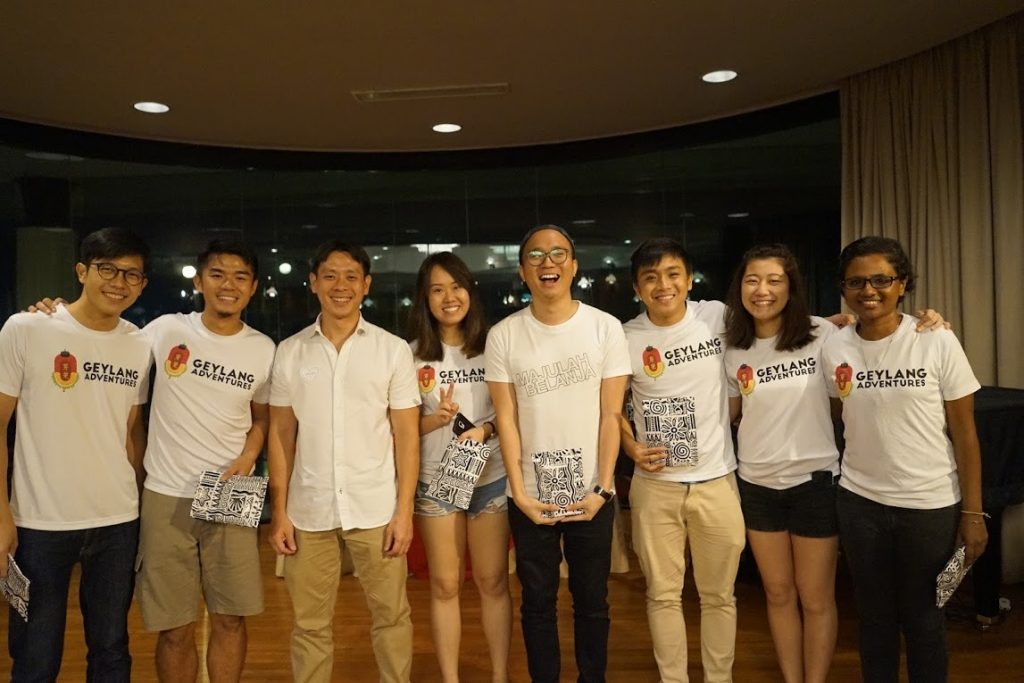
All of us will have a specific cause that identifies with our values but there is one future we are working towards. Every youth creator in this story affirmed a shared vision of developing a socially conscientious generation.
We began by talking about youth creators and their projects. But the key take-away we got is how we can all step forward and shape our future together.
As elucidated by Megan, “We all have a role to play as citizens. It concerns all of us. And we all start somewhere. Slowly lah. Take the first few steps. We are all learning together.”
As we come to the end of Youth Month in July, we’d like to applaud our youth who have stayed resilient and showed tenacity, harnessing their energy to make a positive difference for their community and themselves.
Besides the Young ChangeMakers Grant, YCS Internship Scheme and MehGoWhere, here are other resources interested youth can tap on:
Digital resources like GradGoWhere also provides graduating studentsin these areas: career readiness, career guidance, career skills, career opportunities, financial literacy and mental wellbeing.
Recent or upcoming graduates from tertiary education institutions can consider the SGUnited Traineeships Programme (SGUT) which provides thousands of traineeship positions across various social sectors.
Aspiring content creators can also check out Cr8StudioSG, NYC’s partnership with Creative Nation for job opportunities and mental well-being for freelancers to create content from home.



